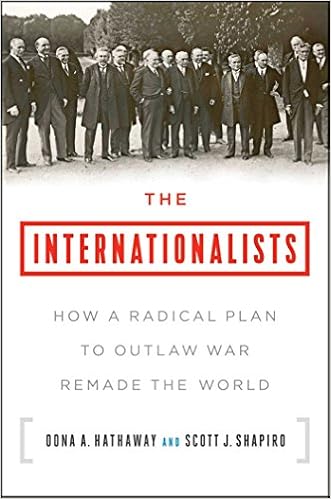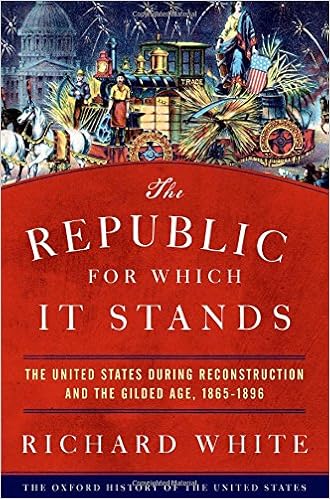The Internationalists: How a Radical Plan to Outlaw War Remade the World, by Yale law professors Oona A. Hathaway and Scott J. Shapiro, is gaining more celebrity than the obscure international treaty it seeks to resurrect. The authors argue that the Kellogg-Briand pact (1928) marked “the beginning of the end” of “war between the states,” and “reshaped the world map, catalyzed the human rights revolution, enabled the use of economic sanctions as a tool of law enforcement, and ignited the explosion in the number of international organizations that regulate so many aspects of our daily lives.” Max Boot (in the NY Times) is skeptical, as are Margaret MacMillan (in the Financial Times), Adam Roberts (in the Telegraph, and behind a paywall) and Louis Menand (in the New Yorker). The Economist--addressing a theme that all of the reviewers reference--worries that Hathaway and Shapiro’s “new world order” is in jeopardy: “But perhaps the greatest danger at present is the incumbency of an American president who despises international norms, who disparages free trade and who continually flirts with abandoning America’s essential role in maintaining the global legal order. The “internationalists”—the heroes of this important book—must be spinning in their graves.” Jack Goldsmith interviewed the authors at the Hoover Institution (podcast here).
In the NY Times, Sean Wilentz reviews Richard White’s history of Reconstruction and the Gilded Age, in which, Wilentz writes, “the ambiguous liberal ideals of contract freedom and self-regulation that helped eradicate slavery became instruments for brute and chaotic corporate power.”
In the London Review of Books, Diarmaid MacCulloch reviews Facing the Revocation: Huguenot Families, Faith, and the King’s Will by Carolyn Chappell Lougee, Susan Pedersen reviews Seven Lives from Mass Observation: Britain in the Late 20th Century by James Hinton, and Pankaj Mishra reviews five books in which “apocalyptic Westernists long to turn things around, to make their shattered world whole again,” including The Once and Future Liberal: After Identity Politics by Mark Lilla. The first two reviews are behind a paywall.
In the LA Review of Books, Stephen Lurie reviews John Pfaff’s Locked In: The True Causes of Mass Incarceration and How to Achieve Real Reform. In the City Journal, Clark Welton reviews Law and Disorder: the Chaotic Birth of the NYPD, by Bruce Chadwick.
In the NY Review of Books, Adam Hochschild reviews three books about the United States during WWI (a time “when the United States, despite its victory in the European war, truly lost its soul at home”). He covers America and the Great War: A Library of Congress Illustrated History by Margaret E. Wagner, War Against War: The American Fight for Peace, 1914–1918 by Michael Kazin, Spider Web: The Birth of American Anticommunism by Nick Fischer, as well as The Great War a three-part television series produced by Stephen Ives and Amanda Pollak for PBS’s American Experience.
Finally, the Atlantic features an interview with Max Perry Mueller about his new book, Race and the Making of the Mormon People, and the New Books Network features an interview with Sarah Haley about her new book, No Mercy Here: Gender, Punishment, and the Making of Jim Crow Modernity and one with Mairaj Syed about his Coercion and Responsibility in Islam: A Study in Ethics and Law.

